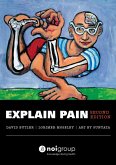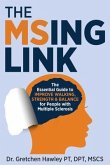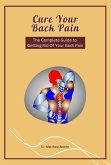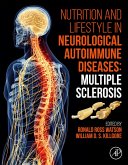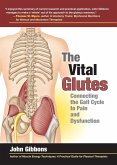"Mobility and Independence: A Guide to Machines Empowering the Physically Challenged" is a comprehensive resource designed to empower individuals with physical disabilities by exploring the vast array of machines and technologies that enhance mobility and independence. In a world where accessibility and autonomy are increasingly recognized as fundamental rights, this book serves as a vital guide for individuals, caregivers, healthcare professionals, and anyone interested in understanding the transformative impact of assistive devices.
The book begins with an exploration of the history and evolution of mobility aids, tracing the development of wheelchairs, prosthetics, and other devices from rudimentary designs to the sophisticated machines of today. It highlights the technological advancements that have revolutionized the field, including motorized wheelchairs, exoskeletons, and adaptive vehicles, which provide users with unprecedented freedom and self-sufficiency.
Each chapter delves into specific categories of mobility aids, offering detailed descriptions, benefits, and potential challenges of various devices. For instance, the book examines the nuances of selecting the right wheelchair, considering factors like terrain adaptability, user comfort, and ease of use. It also covers cutting-edge technologies such as robotic limbs and smart prosthetics that integrate seamlessly with the human body, offering both functionality and a sense of normalcy.
Beyond the devices themselves, "Mobility and Independence" addresses the critical role of customization and user-specific adaptations. Recognizing that each individual's needs are unique, the book emphasizes the importance of personalized solutions, from custom-fitted wheelchairs to tailored vehicle modifications. It also explores the growing field of wearable technology, which includes devices that monitor health metrics and assist in daily tasks, further enhancing the quality of life for users.
The book does not shy away from discussing the social and psychological aspects of mobility and independence. It offers insights into the challenges faced by individuals with physical disabilities, including societal attitudes and accessibility issues, while also celebrating the resilience and determination of those who navigate these obstacles daily. Personal stories and testimonials are interwoven throughout, providing real-life examples of how the right technology can drastically improve an individual's ability to live independently.
In conclusion, "Mobility and Independence: A Guide to Machines Empowering the Physically Challenged" is more than just a technical manual; it is an empowering tool that aims to enhance the lives of individuals with physical disabilities by providing them with the knowledge and resources needed to achieve greater independence. Through a combination of technical information, practical advice, and inspiring stories, this book is a valuable resource for anyone looking to understand and embrace the transformative power of mobility technologies.
The book begins with an exploration of the history and evolution of mobility aids, tracing the development of wheelchairs, prosthetics, and other devices from rudimentary designs to the sophisticated machines of today. It highlights the technological advancements that have revolutionized the field, including motorized wheelchairs, exoskeletons, and adaptive vehicles, which provide users with unprecedented freedom and self-sufficiency.
Each chapter delves into specific categories of mobility aids, offering detailed descriptions, benefits, and potential challenges of various devices. For instance, the book examines the nuances of selecting the right wheelchair, considering factors like terrain adaptability, user comfort, and ease of use. It also covers cutting-edge technologies such as robotic limbs and smart prosthetics that integrate seamlessly with the human body, offering both functionality and a sense of normalcy.
Beyond the devices themselves, "Mobility and Independence" addresses the critical role of customization and user-specific adaptations. Recognizing that each individual's needs are unique, the book emphasizes the importance of personalized solutions, from custom-fitted wheelchairs to tailored vehicle modifications. It also explores the growing field of wearable technology, which includes devices that monitor health metrics and assist in daily tasks, further enhancing the quality of life for users.
The book does not shy away from discussing the social and psychological aspects of mobility and independence. It offers insights into the challenges faced by individuals with physical disabilities, including societal attitudes and accessibility issues, while also celebrating the resilience and determination of those who navigate these obstacles daily. Personal stories and testimonials are interwoven throughout, providing real-life examples of how the right technology can drastically improve an individual's ability to live independently.
In conclusion, "Mobility and Independence: A Guide to Machines Empowering the Physically Challenged" is more than just a technical manual; it is an empowering tool that aims to enhance the lives of individuals with physical disabilities by providing them with the knowledge and resources needed to achieve greater independence. Through a combination of technical information, practical advice, and inspiring stories, this book is a valuable resource for anyone looking to understand and embrace the transformative power of mobility technologies.
Dieser Download kann aus rechtlichen Gründen nur mit Rechnungsadresse in A, B, CY, CZ, D, DK, EW, E, FIN, F, GR, H, IRL, I, LT, L, LR, M, NL, PL, P, R, S, SLO, SK ausgeliefert werden.



